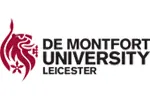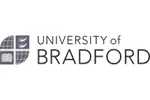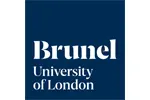Are you looking to start a dynamic and rewarding career in healthcare? Do you have an interest in advanced medical technology and a passion for patient care? Our BSc (Hons) Diagnostic Radiography degree equips you with the scientific knowledge, technical skills, and clinical experience needed to play a vital role in the diagnosis, treatment, and management of a variety of conditions.
Employability is at the heart of this course. Designed to provide you with the knowledge and practical skills required to meet the standards set by the regulatory and professional bodies, the Health and Care Professions Council (HCPC) and the College of Radiographers (COR) respectively, upon completion of the degree you’ll be ready to take your first step into the NHS or other healthcare environments.
Why study BSc (Hons) Diagnostic Radiography at BNU?
Diverse and rewarding career
Diagnostic radiography is a dynamic and evolving profession, one that sits at the heart of modern healthcare.
With the UK’s changing demographics, ageing population, and increasingly diverse healthcare needs, the demand for skilled diagnostic radiographers has never been greater. The future of the profession lies in integrated, multidisciplinary teams, often working within local clinics and community-based settings, as well as the traditional hospital setting.
Being a diagnostic radiographer goes far beyond operating imaging equipment. It’s about interpreting clinical information, supporting accurate diagnoses, and playing a vital role in patient journeys, from initial assessment through to treatment planning.
Drawing on extensive professional experience, we’ve created a degree that not only teaches technical proficiency but also focuses on clinical reasoning, patient communication, and interprofessional collaboration, ensuring you graduate as a confident, adaptable, and highly employable healthcare professional.
Cutting-edge facilities
We’ve developed a modern, forward-thinking degree designed to give you the technical expertise and hands-on experience needed for today’s clinical environments.
At the heart of your training is our state-of-the-art, fully digital Radiography Skills Laboratory, equipped with the latest imaging technology, including artificial intelligence (AI) capabilities. This means you'll train on the same advanced systems used in hospitals, gaining practical experience that mirrors real-world practice. Alongside your clinical placements, this ensures you're fully prepared to work confidently with a wide range of diagnostic imaging equipment upon graduation.
You'll also benefit from our cutting-edge anatomy teaching resources, including an interactive 3D digital anatomy platform, allowing you to explore, dissect, and understand the human body in a hands-on and intuitive way. These tools will support your understanding of the body systems you'll be imaging in clinical practice.
Technology plays a key role in the future of healthcare, and as a diagnostic radiography student, you’ll explore how innovations like AI and digital imaging are transforming patient care, making this a truly exciting and future-focused career path.
Recognised qualification
Every aspect of our BSc (Hons) Diagnostic Radiography course has been carefully designed to develop you into a confident, competent, and compassionate healthcare professional. The curriculum is informed by the extensive clinical experience of our academic staff, many of whom have worked across a variety of radiography settings in the NHS and private sector. Their insights ensure that the course remains relevant, practical, and closely aligned with the realities of modern radiographic practice.
We have structured the degree in line with the professional frameworks and standards set by the Health and Care Professions Council (HCPC) and the College of Radiographers (CoR). This includes a strong focus on evidence-based practice, patient-centred care, ethical decision-making, and the safe and effective use of advanced imaging technologies.
Upon successful completion of the course, you’ll be eligible to apply for registration with the HCPC as a qualified Diagnostic Radiographer.
Practice placements
As part of this course, you will be required to complete practice placements in clinical settings. These placements are carefully integrated throughout the programme to give you the opportunity to apply the knowledge and skills learned in the classroom to real-world healthcare environments.
By working alongside qualified radiographers and other healthcare professionals within local NHS Trusts and imaging departments, you’ll gain invaluable hands-on experience with patients, imaging equipment, and clinical workflows. This not only enhances your learning but allows you to build connections within the healthcare sector early in your career, all while accumulating the mandatory practice hours required for professional registration with the Health and Care Professions Council (HCPC).






